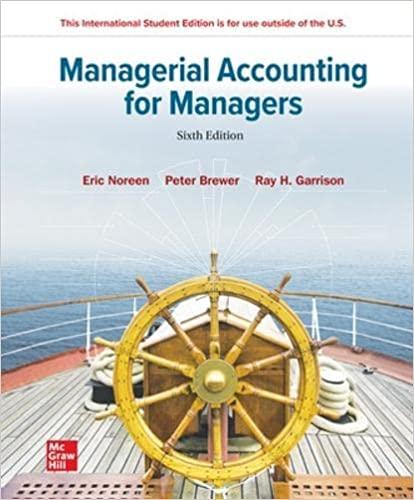Question
Who bears the costs of risk shifting ex-ante and ex-post? What are ways that equity can ex-ante commit to not risk shifting ex-post? Does equity
Who bears the costs of risk shifting ex-ante and ex-post? What are ways that equity can ex-ante commit to not risk shifting ex-post? Does equity want to do this? Why?
What is the debt overhang problem? Why might it explain why growth companies use mostly equity financing? How does DIP financing help to overcome the debt overhang problem in bankruptcy?
How does the likelihood of risk shifting and the debt overhang problem change as a firm approaches financial distress? What about the other extreme, if debt is risk free? Why?
What is the principal-agent problem and how does it apply to public, widely held companies? Why are the benefits of separating ownership and control?
What are common incentive conflicts between management and shareholders? How can we use compensation, monitoring (direct and indirect), and capital structure to mitigate those conflicts?
Step by Step Solution
There are 3 Steps involved in it
Step: 1

Get Instant Access to Expert-Tailored Solutions
See step-by-step solutions with expert insights and AI powered tools for academic success
Step: 2

Step: 3

Ace Your Homework with AI
Get the answers you need in no time with our AI-driven, step-by-step assistance
Get Started


